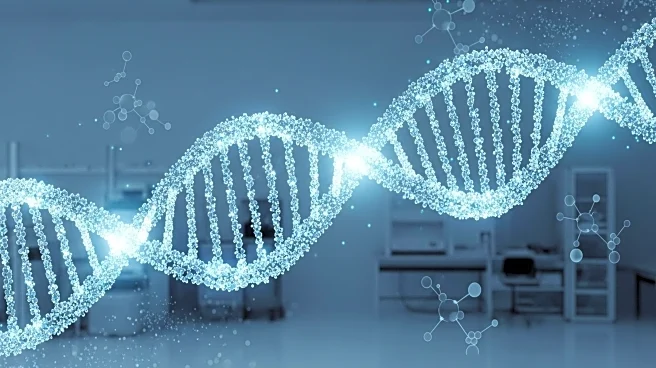What is the story about?
What's Happening?
Kiran Musunuru, MD, PhD, from the Perelman School of Medicine at the University of Pennsylvania, presented a significant update at the European Society of Gene & Cell Therapy conference regarding the treatment of Baby KJ, an infant born with a severe urea cycle disorder. The disorder, caused by a deficiency in the CPS1 enzyme, leads to dangerously high levels of ammonia. Musunuru and his team, including Rebecca Ahrens-Niklas, MD, PhD, from the Children's Hospital of Philadelphia, developed a bespoke base editing treatment for KJ, who was initially admitted for a liver transplant. The treatment involved identifying specific mutations and using lentivirus-transduced cell lines to test editing efficiency. The FDA approved the single-patient investigational new drug application rapidly, allowing KJ to receive escalating doses of the treatment, which resulted in significant health improvements.
Why It's Important?
This development marks a milestone in personalized medicine, particularly in the field of gene editing for rare genetic disorders. The success of Baby KJ's treatment demonstrates the potential of N-of-1 therapies, which are tailored to individual patients with unique genetic mutations. This approach could revolutionize the treatment of rare diseases, offering hope to patients who previously had limited options. The rapid FDA approval and positive outcomes highlight the potential for faster regulatory processes and more effective treatments, potentially reducing infant mortality rates and improving quality of life for affected individuals.
What's Next?
Musunuru and his colleagues are planning to expand their research by designing a master protocol for a primary IND clinical trial encompassing patients with various urea cycle disorders. This would involve gene-specific INDs and amendments based on in vitro data for each variant-specific guide RNA. The team aims to treat additional patients and eventually move to a Phase III trial, which could further validate the efficacy of this personalized approach and pave the way for broader applications in gene therapy.
Beyond the Headlines
The ethical implications of personalized gene editing therapies are significant, as they challenge traditional approaches to clinical trials and treatment protocols. The success of Baby KJ's case could lead to a shift towards more individualized care, raising questions about accessibility, cost, and the potential for disparities in treatment availability. Additionally, the collaboration between public and private entities in this case highlights the importance of partnerships in advancing medical research and innovation.
















